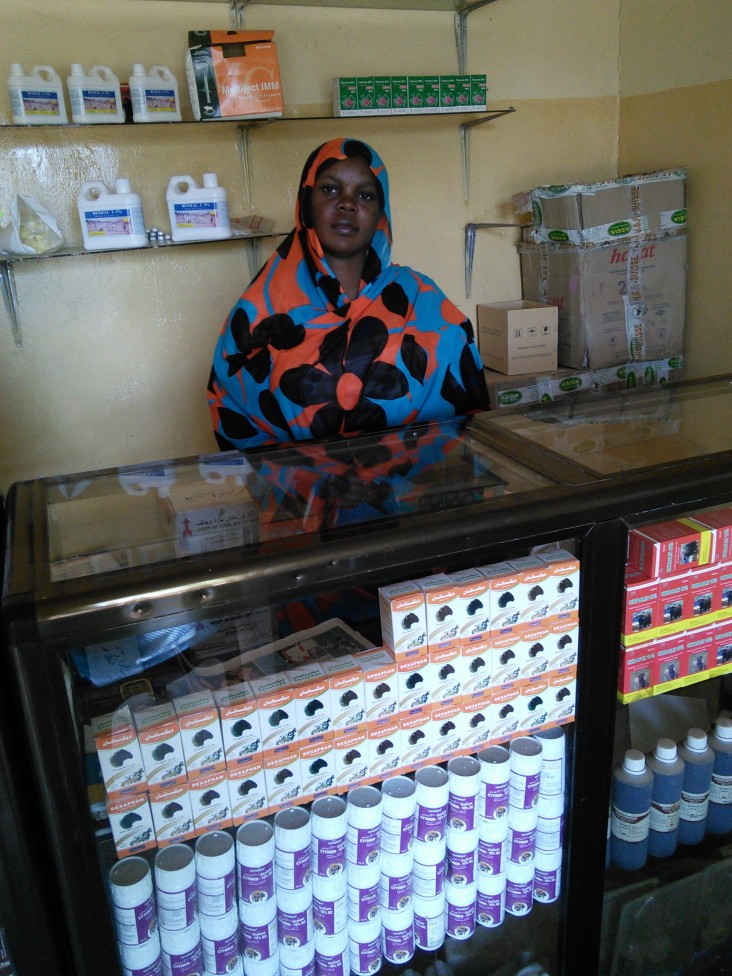
June 2015—Despite a history of recurrent violence over cattle raiding and access to water and grazing land, cross-border trade and relationships are growing between South Sudan’s Northern Bahr el Ghazal state and neighboring Sudan.
Over the past six years, USAID has contributed to the development of a “soft border” between the two areas, enabling Sudanese nomadic tribes to access traditional grazing lands in South Sudan each year. Sudanese traders are also able to travel into South Sudan, expanding access to goods.
Cattle are central to local economies on both sides of the border. One of the key ways USAID is supporting peace in the region is by expanding access to livestock pharmaceuticals and vaccines. The measure protects the livelihoods of the Northern Bahr el Ghazal population by preventing the spread of livestock diseases from Sudanese nomads.
USAID’s support has included training livestock pharmacists, connecting them to wholesalers in Uganda, and equipping them with tools such as solar-powered laptops and satellite phones to serve customers in rural areas.
Anahed Mohamed Ahmed is a livestock pharmaceutical retailer in Aweil, the capital of Northern Bahr el Ghazal. In 2013, she was the only woman in a group of six pharmacists who participated in a USAID-sponsored training on pharmacy management. She credits the training with giving her the skills and connections to expand her business.
“USAID has acted as an eye-opener to my business by helping me learn about business management and obtain access to quality veterinary drugs from Kampala, unlike the ones I used to buy in Khartoum,” said Ahmed.
The other pharmacists who participated in the training are also doing well. “The drugs that we used to get from Khartoum were not as strong as the ones we can now access from Kampala,” said pharmacist James Chan. “As a result, the animal health sector has tremendously improved.”
In just one year, the number of cattle vaccinated in Northern Bahr el Ghazal increased dramatically from 27,000 to 56,000. Thirty-six local community animal health workers are also benefiting from USAID training and logistical support, including equipment needed to establish a vaccine cold chain.
USAID also supports annual pre-migration conferences between the Dinka Malual of Northern Bahr el Ghazal and Misseriya and Rezeigat nomads from Sudan. During these conferences, the three communities agree to a set of ground rules for the annual migration, including compensation for loss of life or property, to prevent isolated incidents from degenerating into cycles of revenge killings.
This activity is part of a five-year (July 2013-July 2018) conflict mitigation program in Sudan that prevents the spread of communal violence and tensions in critical areas where conflict may have national implications. One of the ways the program does this is by building economic interdependency across historic conflict lines.
LINKS
Follow @USAIDSouthSudan, on Facebook, on Flickr







Comment
Make a general inquiry or suggest an improvement.